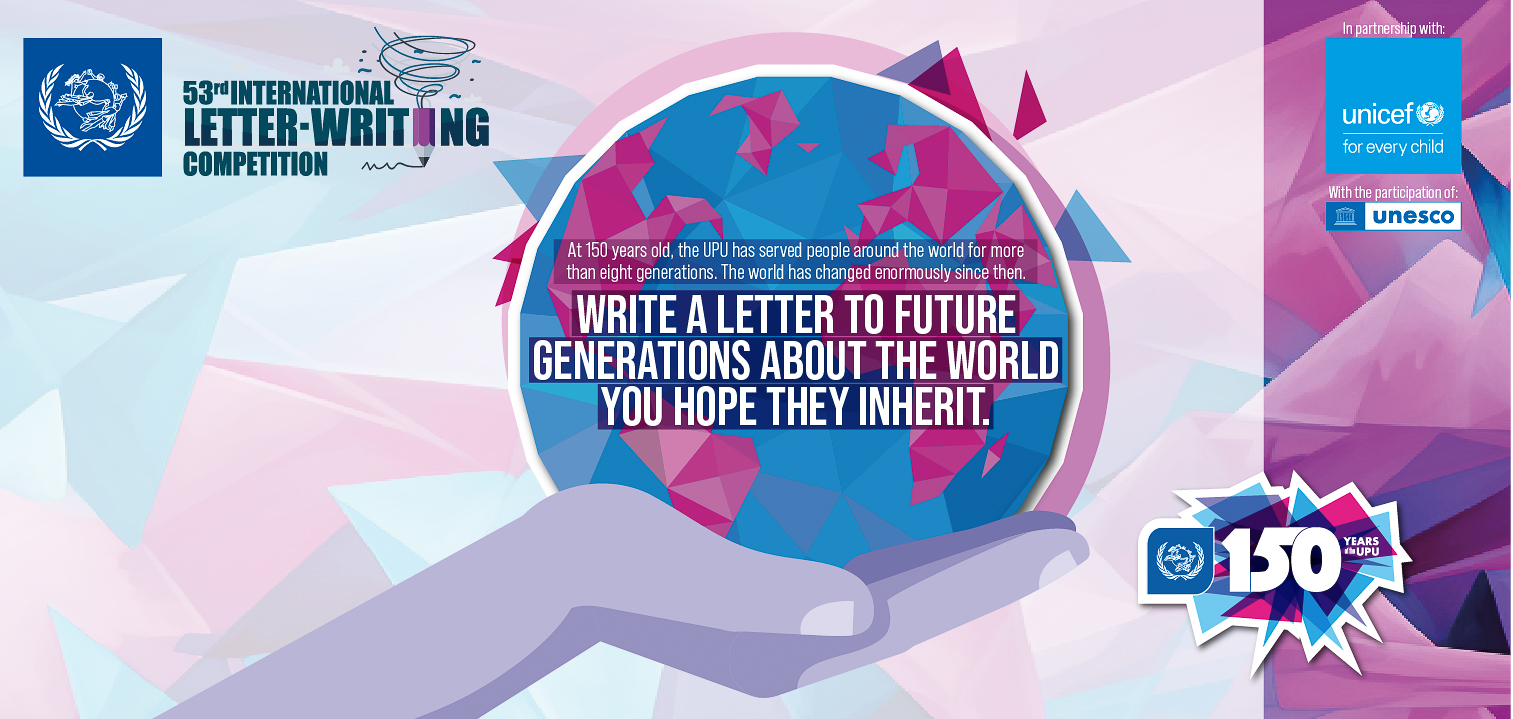The latest episode of the UPU’s Voice Mail podcast features Ms June Kunugi, who discussed her remarkable journey driven by a steadfast dedication to children’s advocacy. This year, through her visionary leadership, she is fostering a pioneering partnership between the United Nations Children’s Fund (UNICEF) and the UPU through the 53rd International Letter-Writing Competition (ILWC), which aims to harness the power of letter writing to give voice to the concerns and dreams of the world’s children and youth. Together with UNICEF, this year's competition highlights the support of UNESCO and welcomes the participation as one of its jury members.
Ms Kunugi, Director of UNICEF’s Public Partnerships Division since April 2021, has dedicated her extensive career to championing children’s rights worldwide. During her 29 years of service at UNICEF, both in-country and at headquarters, Ms Kunugi has held pivotal roles, including overseeing children’s rights-based development programmes and humanitarian responses as the UNICEF representative in Myanmar from September 2017 to April 2021.Reflecting on her journey, which began when she was working as a journalist at the World Summit for Children in 1990, Ms Kunugi notes that the event was transformative. The summit, which focused on mobilizing political will to counter preventable child deaths and securing high-level political engagement for a decade-long plan of action for children, marked the beginning of her longstanding commitment to advocate for children’s rights through effective communication. She points out that communication and advocacy are key strategies aimed at changing political priorities and securing commitments from leaders and decision makers to allocate resources and establish policy priorities that enable positive change.
2024 marks a historic collaboration between UNICEF and the UPU, as they partner for the first time on the ILWC. This initiative is aimed at fostering awareness of, and action towards, the 2030 Agenda for Sustainable Development, focusing particularly on engaging children in a meaningful discourse about their future. “I am thrilled that we have this opportunity. The UPU also aims to increase awareness, understanding and support for action towards the achievement of the 2030 Agenda for Sustainable Development, and it’s about doing this with and for children,” Ms Kunugi stated. She emphasized the unique value of traditional postal networks and the work of the UPU in reaching children in less digitized regions, thereby contributing to equity. “I believe the postal channel is a deeply human, people-to-people channel with tremendous reach. The UPU’s educational contribution, which galvanizes action and elicits ideas directly from children, is tremendous. I very much hope that this continues,” she said.
The partnership not only highlights the importance of traditional communication in the digital age but also, she says, serves as a “feedback loop, because the young will have their suggestions that also reflect the realities in their homes and communities.” It will therefore enable them to express their thoughts and influence policy through digital platforms designed for and by young people, such as UNICEF’s U-Report. This engagement is part of UNICEF’s broader strategy not only to educate and sensitize children about the world’s major challenges, including the Sustainable Development Goals, but also to empower young people to take the initiative and actively participate in the changes they wish to see. Through additional initiatives – such as the World’s Largest Lesson, which began in 2015, and World Children’s Day – UNICEF works to enable children to participate actively in shaping their future.
As UNICEF prepares for its role in the upcoming UN Summit of the Future, Ms Kunugi stresses the importance of genuine engagement with children, acknowledging their unique rights and ensuring that their voices are amplified in major global forums. She highlights that UNICEF, along with other organizations specialized in fostering children’s participation, is prepared to collaborate extensively. Furthermore, she believes that it is essential to recognize that children have distinct rights and abilities that also need attention. They require appropriate protection, channels, platforms and audiences that genuinely listen to them and respect their contributions.
Looking ahead to the 2024 edition of the ILWC, Ms Kunugi is eager to hear directly from young participants. “I am always inspired by their communication,” she remarks. “Despite the challenges they face, children consistently demonstrate a hopeful outlook on effecting positive change,” she adds. This perspective is crucial as they address their letters to future generations, ensuring that the legacy of their thoughts and aspirations endures through the timeless art of letter writing.
Ms Kunugi’s career and ongoing efforts underscore the profound impact of nurturing and amplifying the voices of young people. Through partnerships such as the ILWC, UNICEF continues to champion the rights and potential of children globally, ensuring that the art of letter writing – a human form of expression – remains a vibrant and impactful medium for advocacy and change.
